Experiencing Hyperstimulation Anxiety is a common challenge for many anxiety sufferers. Moreover, the excessive stimulation of the senses creates worsened anxiety signs that emerge in situations which usually do not trigger anxiety symptoms. Various factors cause nervous system sensitivity thus creating difficulties with stress response management. Being aware of causes will support your ability to gain control while developing sustainable anxiety relief methods.
You should consult with your doctor about new or returning symptoms or those that persist or change along with any treatment side effects because some medical issues and drugs can lead to similar sensations.
Your perspective on anxiety symptoms becomes solid because your doctor confirmed that anxiety itself causes all your symptoms exclusively without additional medical factors at play. In that case, there are several reasons why Hyperstimulation Anxiety can develop and persist, even when you’re not actively feeling anxious.
What is the Hyperstimulation Anxiety response?
Sensory stimulation is a normal part of daily life. However, when multiple stimuli become overwhelming—such as loud noises, bright lights, strong smells, or persistent digital interactions—the nervous system may struggle to process them effectively. This overstimulation can lead to an exaggerated stress response, triggering heightened anxiety levels.
According to the National Institute of Mental Health (NIMH), The combination of prolonged stress together with overactivated nervous system functions leads to anxiety disorder development. The brain reacts to intense sensory overload by mistaking meaningful signals as harmful threats which activates the fight-or-flight response for extended periods. Hyperarousal sustains over an extended period leading to symptoms that include tiredness and increased body tension together with mental and physical restlessness as well as poor concentration abilities.1
By understanding how sensory overload impacts the nervous system, individuals can begin to implement strategies to reduce overstimulation and regain a sense of balance.
1. Common Triggers of Hyperstimulation Anxiety
- Environmental factors: Crowded places, bright lights, and loud noises
- Digital overload: Constant notifications, screen time, and social media
- Emotional stressors: Work pressure, personal conflicts, or traumatic experiences
- Physical triggers: Lack of sleep, poor diet, and excessive caffeine intake
- Medications: Some medications like anti-anxiety or antidepressants medications can cause Headaches Nausea Diarrhea Dry eyes Dizziness Trembling Brain zaps, and more speak. If you suspect that your medication might be causing anxiety like side effects talk with your doctor and pharmacist about reducing the dosage, switching to a different medication, or discontinuing your medication if that’s an option for you.
- Other factors: Recreational drugs – Stimulants – Sleep deprivation – Fatigue – Hyperventilation and hypoventilation – Low blood Sugar -Nutrition deficiency – Dehydration – Hormone changes.
Exposure to these stress-inducing triggers for an extended time leads to persistent alertness states which prevent people from recovering.2
2. What are The Effects of Hyperstimulation Anxiety?
Hyperstimulation activates similar bodily responses related to the fight-or-flight reaction that occurs in typical stress situations. The body reveals symptoms caused by prolonged elevated cortisol levels when overstimulation leads to stress hormone activation.3
- Increased heart rate and rapid breathing
- Difficulty concentrating or feeling mentally foggy
- Irritability and heightened emotional sensitivity
- Physical tension, headaches, or digestive issues
Hyperstimulation-driven chronic stress might evolve into prolonged anxiety disorders if medical professionals do not treat it.
Symptoms of Hyperstimulation Anxiety
1. Mental and Emotional Effects4
- Persistent feelings of restlessness or nervousness
- Increased sensitivity to noise, light, or other stimuli
- Trouble relaxing, even in calm environments
2. Physical Health Impacts4
- Sleep disturbances and chronic fatigue
- Digestive issues like nausea or bloating
- Higher risk of high blood pressure and heart disease
3. Daily Life Challenges4
- Reduced productivity and focus
- Increased social withdrawal due to sensory overload
- Lowered stress tolerance and emotional resilience
Coping Strategies for Hyperstimulation Anxiety
1. Reduce Sensory Overload5
Surrender Sessions
Surrender sessions are meant to create a new relationship with your body and eliminate the need to be reactive to anxiety symptoms. When done regularly, surrender sessions will give you deeper clarity around your symptoms of anxiety, calm a dysregulated nervous system, and begin turning negative emotional states to positive ones. Please enjoy the guided surrender session below from The Anxiety Guy YouTube Channel…
- Create a calm environment: Limit exposure to loud sounds and bright lights
- Take breaks from screens: Reduce digital stimulation and practice tech-free hours
- Use noise-canceling headphones: Helps block out excessive auditory input
2. Practice Mindfulness and Relaxation Techniques6
Mapping Meditations
Mapping is a similar process to surrender sessions but with slight differences. With mapping we turn our conscious focus from one particular body part (or anxiety symptom) to another. Whereas in surrender session our focus is on completely letting go of the need to control what the body does. Both processes are powerful when done regularly, here’s a guided session you can begin with today.
- Deep breathing exercises to activate the parasympathetic nervous system
- Meditation and yoga to promote relaxation and stress relief
- Grounding techniques to stay present and avoid overstimulation
3. Improve Daily Habits7
Heal your hypersensitivity and hypertension
The video below will share with you direct ways to begin healing your hypersensitivity. This hypersensitivity healing process may take time, so it’s vital that you be patient and stay on top of the recommendations I give in the YouTube video below.
- Prioritize quality sleep to allow the nervous system to reset
- Maintain a balanced diet and reduce caffeine intake
- Engage in regular physical activity to manage stress naturally
4. Seek Professional Support8
Emotional reframing
If you believe your repressed feelings and emotions are a result of holding onto perceptions from past experiences (especially childhood), emotional reframing will help. Emotional reframing is an imagery focused way of communicating directly with the subconscious mind to bring about not only proven psychological shifts, but very real physiological ones as well.
The guided session below from my YouTube channel is specifically for childhood trauma that you may begin today.
If symptoms persist, consulting a mental health professional can be beneficial. Therapies such as:
- Cognitive Behavioral Therapy (CBT): Helps develop coping strategies for stress
- Exposure Response Prevention (ERP): Gradual desensitization to triggers
- Medication options: Antidepressants or anti-anxiety medications, if needed
5. Consider Medications as a Last Resort9
For some individuals, medications can provide temporary relief while working on long-term healing strategies. If anxiety symptoms remain severe despite lifestyle changes and therapy, a doctor may recommend:
- Selective Serotonin Reuptake Inhibitors (SSRIs) – Often used to regulate anxiety-related neurotransmitters.
- Benzodiazepines – Short-term relief for acute episodes (used cautiously due to dependency risks).
- Beta-Blockers – Help reduce physical symptoms like rapid heartbeat and shaking.
Medication should always be discussed with a healthcare provider to weigh the benefits and risks. The goal should be to use them as a tool while continuing to build natural coping mechanisms.
There are a few ways to begin healing your anxiety symptoms warriors. I hope this blog post was beneficial and if you’ve read up to this point I commend you. You’ve shown that you are ready to invest in your anxiety healing and no longer lead a life of coping with anxiety symptoms. I look forward to your anxiety success stories in the very near future. Until then, remember that you are more than anxiety, and I love you.
Please share a comment below on your biggest epiphany from this post on anxiety symptoms when not anxious
References
- Anxiety Disorders. (2025). National Institute of Mental Health (NIMH). https://www.nimh.nih.gov/health/topics/anxiety-disorders [↩]
- Mofatteh, M. (2020). Risk factors associated with stress, anxiety, and depression among university undergraduate students. AIMS Public Health, 8(1), 36–65. https://doi.org/10.3934/publichealth.2021004 [↩]
- Koprowski, B. (2024, May 9). What to know about hyperstimulation anxiety. Medicalnewstoday.com; Medical News Today. https://www.medicalnewstoday.com/articles/hyperstimulation-anxiety [↩]
- Manzar, M. D., Alghadir, A. H., Khan, M., Salahuddin, M., Albougami, A., Maniago, J. D., Vasquez, B. A., Pandi-Perumal, S. R., & Bahammam, A. S. (2021). Anxiety Symptoms Are Associated With Higher Psychological Stress, Poor Sleep, and Inadequate Sleep Hygiene in Collegiate Young Adults—A Cross-Sectional Study. Frontiers in Psychiatry, 12. https://doi.org/10.3389/fpsyt.2021.677136 [↩][↩][↩]
- Sensory Over-Responsivity: An Early Risk Factor for Anxiety and Behavioral Challenges in Young Children By Kimberly , Grace T Baranek, William E Copeland, Scott Compton, Nancy Zucker, Geraldine Dawson, Helen L EggerContainer: Journal of Abnormal Child PsychologyPublisher: Springer Science+Business MediaYear: 2018Volume: 47Issue: 6DOI: 10.1007/s10802-018-0502-yURL: https://pmc.ncbi.nlm.nih.gov/articles/PMC6508996/[↩]
- Mindfulness to improve the mental health of university students. A systematic review and meta-analysis By Ana María González-Martín, Agustín Aibar-Almazán, Yulieth Rivas-Campo, Yolanda Castellote-Caballero, del CarmenContainer: Frontiers in Public HealthPublisher: Frontiers MediaYear: 2023Volume: 11DOI: 10.3389/fpubh.2023.1284632URL: https://pmc.ncbi.nlm.nih.gov/articles/PMC10726040/[↩]
- Coping resources mediate the prospective associations between disrupted daily routines and persistent psychiatric symptoms: A population-based cohort study By Tsz Wai Li, Li Liang, Po Lam Ho, Ernest Tsun, Stevan E Hobfoll, Wai Kai HouContainer: Journal of Psychiatric ResearchPublisher: Elsevier BVYear: 2022Volume: 152DOI: 10.1016/j.jpsychires.2022.05.033URL: https://pmc.ncbi.nlm.nih.gov/articles/PMC9127352/[↩]
- Barriers to help-seeking in medical students with anxiety at the University of South Carolina School of Medicine Greenville By Helen Kaiser, Tori Grice, Brittany Walker, Jacob KaiserContainer: BMC Medical EducationPublisher: Springer Science and Business Media LLCYear: 2023Volume: 23Issue: 1DOI: 10.1186/s12909-023-04460-5URL: https://pubmed.ncbi.nlm.nih.gov/37344832/[↩]
- Anxiety Treatment: Should You Be Wary of Anxiety Medication? By Container: Psychology TodayYear: 2017URL: https://www.psychologytoday.com/intl/blog/resolution-not-conflict/201701/anxiety-treatment-should-you-be-wary-of-anxiety-medication[↩]


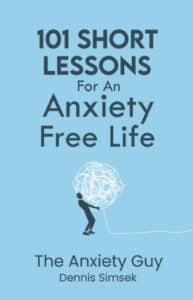

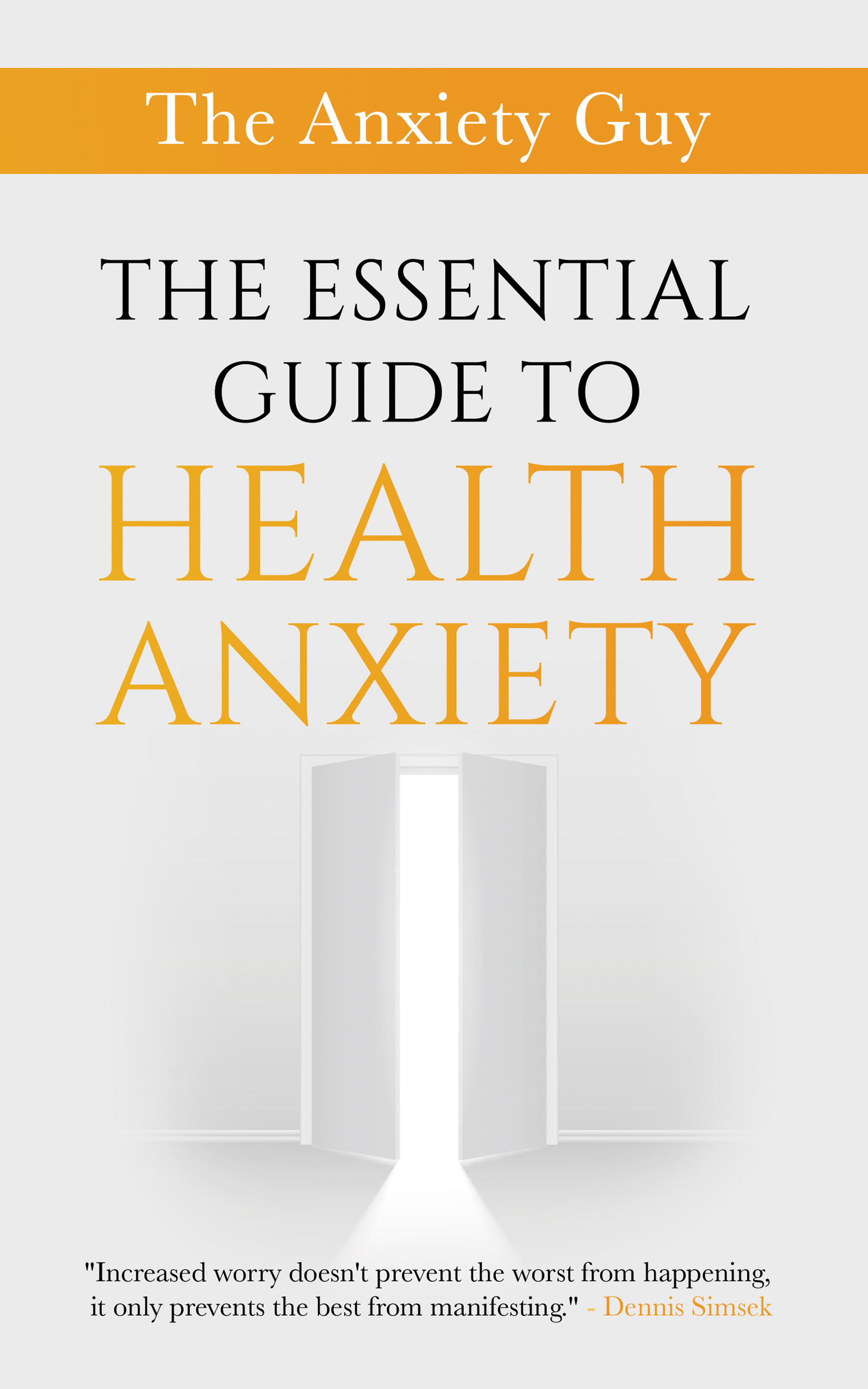
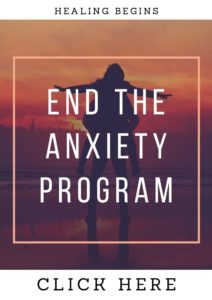
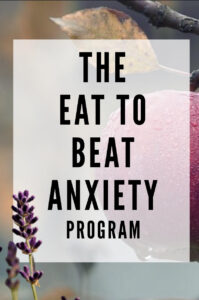



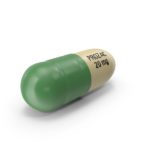

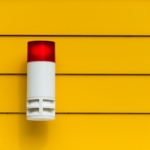







My biggest epiphany from this post was where you said, “As long as the body is hyperstimulated or chronically stressed even to a slight degree it can exhibit symptoms. Once again, hyperstimulation is one of the main reasons you can have anxiety symptoms even though you don’t feel anxious at that time.” So if I am stressed all the time, hyperstimulated, etc. I may not be anxious but my body still shows it! So interesting, thank you!
This is amazing Dennis! As Always. I have been an anxiety sufferer for a decade now and I have benefits on healing journey for about 7. Part of the ‘ relapse’ phase for me is always wondering why is this not going away?! Knowing that the body takes time to heal and considering that the nervous system is dysregulated brings some me some solace. If there is a cure through acceptance and letting go of the fear of fear,I hope my mind can truly accept this phenomenon and live again. Your posts are always so poignant and make a difference. Thank you.
So very welcome Amira and thank you for the engagement.
The number one thing I hear on every forum from anxious people like myself, is not understanding why we are having symptoms when we aren’t anxious. Dennis does a superb job of helping us understand a deregulated nervous system. The key to accepting is understanding and that helps remove the fear. It’s very hard to understand but this blog helps it make sense! As always, thank you Dennis for your spot-on understanding and explanations!
Thank you for the kind words.